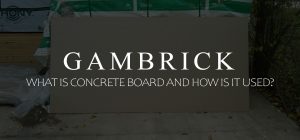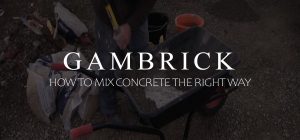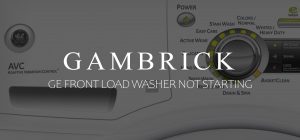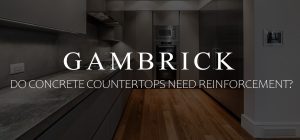
Best Concrete Mix For Driveways
Concrete is one of the most widely used construction materials in the world. It’s easy to make, fairly cheap, extremely strong and conforms to any shape form it’s poured into. This makes it a very versatile material which is why it’s used to build just about everything. Foundations, sidewalks, patios, walls, countertops, sinks, steps, columns and driveways are just a few of the things that can be made out of concrete. The best concrete mix for driveways is at least 3500 psi compressive strength and 5-6 inches thick over compacted gravel and earth with a water to cement ratio of .50 and aggregate less than an inch. Often times additional reinforcements are added like fiber, wire mesh or rebar and in cold climates the air-entrainment value should be around 6%. To build a driveway that’s reliable and doesn’t crack, strong concrete is required.
Concrete driveways are constantly subject to the elements and made to carry extreme loads from parked cars and trucks. If you’re planning on pouring your own driveway it’s important to use a concrete mix that’s strong enough and able to withstand your local climate.
Traditionally concrete mixes are typically best for a driveway or pouring fence posts because they’re extremely strong. But pervious concrete mixes can be better if the property has drainage issues. This is because pervious concrete has lots of open voids so water can drain through the slab.
There are 3 main options when it comes to concrete. Using pre-mixed bags like Quikrete, buying from a concrete plant, or mixing your own on site. Whichever you choose, the ingredients and ratios should be the same.
Ahead we’ll discuss in more detail the best concrete mix for driveways along with lots of pro tips and tricks.
Why Use Concrete For Driveways
Concrete is a fantastic material to build a driveway with. It’s very strong, attractive and fairly cheap. In general people either use blacktop, pavers, gravel or concrete to build a driveway. Out of these choices, concrete is in my opinion the best option and relatively cheap.
Concrete is very easy to mix yourself. Its made from sand, cement, and an aggregate like stone. Simply mix them all together in a specific ratio to create the strength you need. More stone makes stronger concrete that’s a little harder to work with. Less stone makes weaker concrete that’s easier to form and smooth. It’s very easy to adjust the ingredient ratios to alter the strength of your concrete.
Stores like Home Depot and even Walmart sell 80 pound bags of Quikrete concrete that are strong enough to build a driveway for under $6 bucks a bag. And you don’t need any special equipment. A wheelbarrow or mixing tray and simple hand tools like a shovel, hoe and trowel are all you really need. Specialized tools that are used to shape the edges and a long broom can be bought at any home Depot for very little money. And there’s no need for saws or any expensive power tools.
Another huge reason concrete is used to build driveways is because of how durable it is. Concrete can withstand any weather condition and pretty much any load. Rockets are launched off of concrete pads because of how strong a material it is. As long as you use the right thickness and strength concrete mix, it’s more than strong enough to handle car and truck loads.
Compressive Strength
The main thing to consider when choosing your concrete driveway mix is it’s compressive strength. Compressive strength is the rating of how much compression a material can resist. Compression being the weight of a car or truck. This strength is measured in psi or pounds per square inch. The higher the number the more durable the concrete. In general we pour our driveways at 3500 psi and above.
In cold climates it’s better to use concrete with a higher psi. Because colder climates have freeze/thaw cycles that put a lot of pressure on the concrete, you need a stronger mix.
Tensile strength is a little different. It’s the measure of how strong concrete is when pulled apart. Concrete typically has a very high compressive strength and a much lower tensile strength. Because of the lack of tensile strength, reinforcements like wire mesh, fiber or rebar can be used.
Concrete mixes are designed with a certain amount of compressive strength which is rated in terms of pounds per square inch (psi). Remember, the higher the concrete mix’s psi, the more durable the concrete is. By varying the ratio of sand, cement and aggregate you get a different psi. You can also adjust the psi based on the type of aggregate used. Stones less than 1 inch are typically considered the best for most mixes.
Water
Water is a very important part of mixing strong concrete. Because of this, it’s very important to carefully measure the water. Use too much water and you weaken the concrete quite a bit, too little, and the concrete doesn’t mix thoroughly which also results in weak spots. A typical 80 lb bag of concrete needs about 3 quarts of water. Using more can weaken the concrete by as much as 40%. This is very bad when your pouring a driveway because high strength concrete matters.
If you weaken the concrete by adding either too much or too little water, your driveway will be prone to cracks, buckling and deterioration.
When your concrete is properly mixed it should be a semi-solid that resembles thick oatmeal. A great way to test this is by hand. Simply pick up the concrete with your hand and shape it like a snowball. If the concrete holds its form and you can smooth the edges, then the consistency is right. But if it’s too dry and crumbles apart or you see dust, then you need more water. If the concrete is like soup and can’t be picked up, there’s way too much water and you need to add more dry mix.
Air-entrained Concrete Mix
In colder climates with freeze/thaw cycles it’s better to use a high-performance concrete mix. It costs a bit more per square foot than a standard mix, but in the long run it could save you a lot of money by preventing damage. The basic concrete is the same mix of sand, cement and aggregate but other ingredients are thrown in to increase its air-entrainment.
Because your driveway will be subject to vehicle traffic, freeze/thaw cycles, and possibly deicing chemicals. You need a concrete that can withstand all these conditions.
Air-entrainment involves adding an air-entraining ingredient to freshly mixed wet concrete. This ingredient causes the development of microscopic air bubbles within the concrete. These bubbles allow any moisture that enters the concrete to expand into air pockets during a freeze-thaw cycle. Instead of putting internal pressure on the concrete, the pressure now has a place to go. This area relieves pressure and helps prevent damage.
Here’s what you need:
- A compressive strength of at least 4000 psi.
- An air content of around 6%.
- A water-cement ratio below 0.50 to improve concrete durability and strength
Concrete Characteristics
Here’s a summary of what characteristics make the best concrete mix for driveways.
- To withstand the weight of vehicles and other site conditions, choose a concrete with a strength of 3,000 – 4,000 pounds per square inch for your driveway. The standard here in NJ is 3,500 psi. You can vary the psi based on local climate. Because cold areas that see a freeze/thaw cycle typically need stronger concrete to resist expansion and contraction pressure, use a stronger concrete with a higher psi It’s very simple.
- In areas with cold climates, concrete mix should have a 6 percent air-entrainment value. Because air-entrainment creates small bubbles in the mix, giving the water inside concrete a place to go when it freezes.
- The general size of your aggregate stone used in concrete should be between 0.75 and 1 inch.
- Check the slump rating of your concrete prior to pouring it. Slump is a measurement of the thickness and consistency of the concrete when it’s wet. For driveways, a slump rating of 4 to 5 inches is best. This rating feels like thick oatmeal. Because water is one of the most important parts of strong concrete you really have to pay attention to it. This is reflected in the slump rating.
- Concrete driveways should be at least 5-6 inches thick with reinforcement if necessary.
Summary: Best Concrete Mix For Driveways
Concrete is one of the most widely used construction materials in the world. Because it’s easy to make, fairly cheap, extremely strong and conforms to any shape form it’s poured into. This makes it a very versatile material which is why it’s used to build just about everything. Foundations, sidewalks, patios, walls, countertops, sinks, steps, columns and driveways are just a few of the things that can be made out of concrete. The best concrete mix for driveways is at least 3500 psi compressive strength and 5-6 inches thick over compacted gravel and earth with a water to cement ratio of .50 and aggregate less than an inch. Often times additional reinforcements are added like fiber, wire mesh or rebar and in cold climates the air-entrainment value should be around 6%. To build a driveway that’s reliable and doesn’t crack, strong concrete is required.
Concrete driveways are constantly subject to the elements and made to carry extreme loads from parked cars and trucks. If you’re planning on pouring your own driveway it’s important to use a concrete mix that’s strong enough and able to withstand your local climate.
There are 3 main options when it comes to concrete. Using pre-mixed bags like Quikrete, buying from a concrete plant, or mixing your own on site. Whichever you choose, the ingredients and ratios should be the same.
If you have any questions or comments e-mail us any time. We’d love to hear from you.

John Mazzuca | About | More Posts |
Custom Home Builder
John Mazzuca is a custom home designer and builder at Gambrick with over 25 years experience in the construction industry. John has designed, built and/or remodeled hundreds of homes, small buildings, and commercial projects. He writes about business, real estate, home building, and household electronics. His work has been featured in Fox Business, Better Homes & Garden, House Beautiful, and more.




















